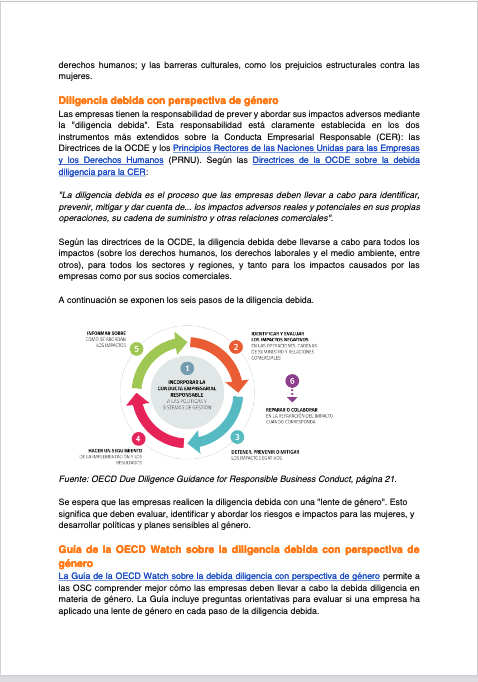Due diligence has come of age. What was once marginalized as an appendage of a less than trustworthy markets driven form of internalizing human right sensibilities in economic activity has come to dominate both public and private discourse on naturalizing human rights and (eventually) sustainability into the pricing of the components of production chains and the quality of its practice through publicly overseen diligence driven compliance and accountability systems (OECD Due Diligence Guidance for Responsible Business Conduct). Due diligence is now understood as a set of operational obligations, as a system for embedding normative valuations in the costing of production, and as a social quality control measure. Its importance is marked by the recent efforts to codify variations of due diligence. More importantly has been the process of naturalization within the cultures of human rights defenders--an essential element of the compliance system in global production.
Due diligence has become both more sophisticated and usefully functionally differentiated. Its contemporary focus on gender is especially to be applauded; and nurtured. Another step in this direction was taken in an excellent recent online workshop: Evaluating corporate due diligence through a gender lens in Latin America.
On 27 May 2022, Latin American activists and NGOs, international CSOs and academics gathered in an online workshop to discuss the differential impact on women’s human rights when companies fail to meet their due diligence obligations.
The event was convened by OECD Watch, Economic, Social and Cultural Rights Project (ProDESC), Labour Development Programme (PLADES), Conectas Direitos Humanos (Conectas), and Swedwatch, and was attended by human rights defenders from Bolivia, Brazil, Ecuador, Mexico, and Peru.
The workshop began with a presentation of OECD Watch’s Guide on Gender Due Diligence, which sets out how civil society can evaluate a company’s due diligence. This was followed by three case studies on harmful impacts of irresponsible business conduct on women; focused on wind farms in Mexico, coffee plantations in Brazil, and the textile industry in Peru. In the first breakout session of the workshop, participants used the guide to identify and assess gaps in the gender due diligence (if any) conducted by companies involved in these cases. After this discussion, the OECD Guidelines for Multinational Enterprises and the National Contact Point (NCP) complaint system were explained. In the second breakout session, participants considered whether NCP complaints alleged corporate failures of gender due diligence could and/or should be filed in the three case studies.
This report, also available in pdf in English, Spanish and Portuguese below, provides an overview of the issues and case studies discussed during the online workshop.



















No comments:
Post a Comment